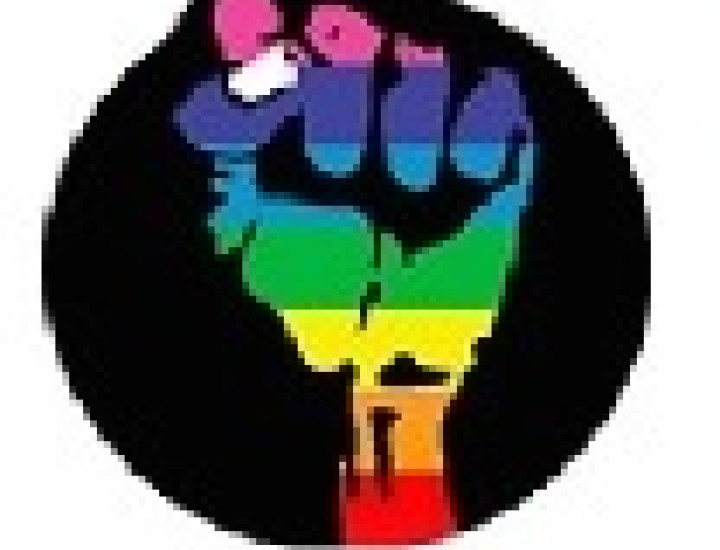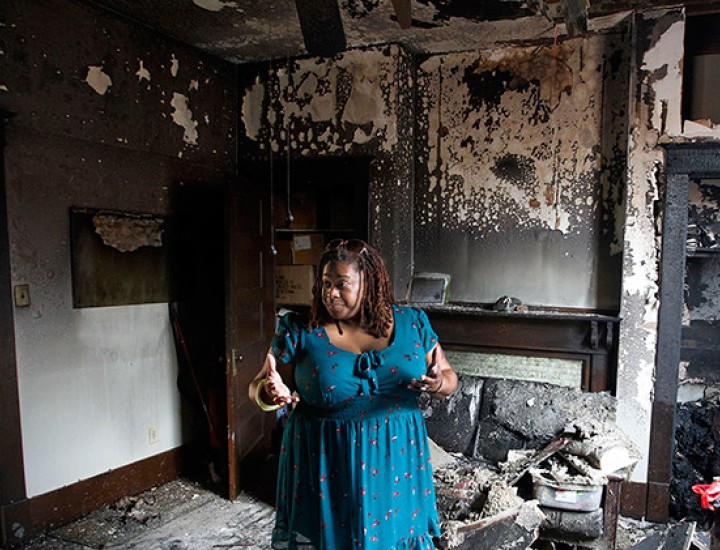Crafting an Advocacy Agenda for Black Gay Men in the U.S. South (2014)
Crafting an Advocacy Agenda for Black Gay Men in the U.S. South
By Candace YA Montague for TheBody.com
September 5, 2014
If black gay men in the U.S. South had an agenda for achieving a life free from stigma and discrimination, what would be on it? What are the issues that must be confronted to make progress toward equality? The webinar We Are Here: Toward an Advocacy Agenda for Black Gay Men in the South, presented by HIV Prevention Justice Alliance, brought together select voices to try to answer these questions and more. Presenters on the webinar pointed out that black gay men in the South -- and around the country -- are burdened with mass incarceration, poverty, unemployment, stigma and discrimination. In order to level the playing ground and make strides toward ending certain policies that contribute to these burdens, the webinar presenters stressed the need to organize and take action on several key issues.
Fighting HIV Criminalization Laws
Rashida Richardson, a staff attorney for the Center for HIV Law and Policy, spoke about how critical it is for black gay men to fight HIV criminalization laws. In a perfect world, we wouldn't have to worry about being criminalized for having sex, but the reality for many black gay men in the South is that fear and ignorance have somehow snuffed out sensibility. This population is at a higher risk of being unjustly penalized by the law just for being HIV positive. Richardson stressed that fighting for impartiality should be on the agenda.
Black gay men face so many challenges (poverty, housing, unemployment, etc.) that they are often at high risk for not meeting their basic needs. That often leads to what many call "survival sex," meaning that some turn to prostitution as a method of survival. And while poverty doesn't exempt people from having to obey the law, the webinar presenters noted that some penalties for those who are HIV positive may be quite a bit more severe, even when the individuals pose no threat of transmission. In South Carolina, for example, HIV-positive persons convicted of prostitution are subjected to penalties that are ten times greater than those for HIV-negative persons. This includes penalties for acts that pose little to no risk of exposure such as performing oral sex.
Getting a National Office of LGBT Health Established Within HHS
Who in the federal government is looking out for sexual minorities? Which office can the LGBT population look to for health promotion and research that is specific to its needs? Louis Graham, an assistant professor at the University of Massachusetts, Amherst, focused his section of the webinar on the need to establish a National Office of LGBT Health within the Department of Health and Human Services (HHS).
In 2009, then-U.S. Rep. Tammy Baldwin of Wisconsin introduced H.R. 3001, the Ending LGBT Health Disparities Act. One of the provisions of this act was establishing an Office of LGBT Health within the Office of Minority Health. A deputy assistant to the secretary would head this office. This office would be tasked with monitoring health promotion and education for sexual minority populations. It would also focus on pushing legislation and funding research that would help eliminate health disparities for LGBT people. Unfortunately, the bill died and hasn't been reintroduced as yet.
According to the webinar presenters, black gay men in the South can join forces with the likes of the Gay Men's Health Crisis and the Human Rights Campaign to push for this initiative to come to fruition.
Voting
Aquarius Gilmer, the regional affiliate coordinator for the National Black Leadership Commission on AIDS, presented on the importance of voting. Voting is arguably the best way to show power in the U.S. Gilmer notes that voting shows how much people are paying attention to the issues and to policymakers, and that they are willing to make their voices heard. Voting can turn many a politician's head if you work it right. Gilmer raised the example of Republican Sen. Thad Cochran of Mississippi. When he was at risk of losing the primaries, Cochran turned to black voters for support. And he got it.
Of course, there are no guarantees that voting for someone will ensure allegiance from the individual once elected, but in the long run it helps to show policymakers that a group united in cause can move mountains. Lawmakers in the South are no different than those from any other part of the country.
Black gay men in the South have two strengths: hope and power. And with more organization and bold advocacy, they can bring about structural changes that work in favor of their health, safety and well-being.

